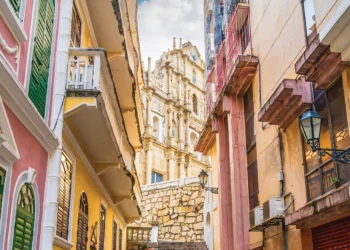Melco Resorts & Entertainment Chairman and CEO Lawrence Ho shares his vision for Macau, aspirations for Japan and reasoning behind the recently acquired stake in Crown Resorts with Inside Asian Gaming.
Muhammad Cohen: What is Melco’s identity? If I bought a Melco T-shirt, what would it say about me?
Lawrence Ho: It would say that you love premium. Melco created premium mass. Melco is as much about entertainment as we are a gaming company – premium entertainment – and we’re Asian-based. A company that’s headquartered in Hong Kong with deep roots in Macau. We understand our customers and guests and their preferences, especially what they’re going to want in the future, better than anyone else.
We’ve always been about that. When we did the IPO in 2006, on the roadshow, I was all about “the future is mass, mass, mass.” The term “premium mass” wasn’t coined yet, but I was alluding to it. We were the company that pioneered this segment, that went away from VIP.
We were way too early in 2006, because VIP had a fantastic run all the way to 2013.
But we’ve always been built for the future. That’s how we look at everything. That’s why we built Morpheus. At the time we built “The House of Dancing Water” show and some of the subsequent shows, the focus was always on the future, what the guests’ future preferences will be.
Ultimately – and I tell my colleagues this every day – we’re in the fun industry. What other industry has the casino to help subsidize all these insane, crazy ideas? And our guests will expect more going forward, because our guests are becoming more affluent and they’re very well-traveled; they’ve been to all the major cities in the world. What they used to like about Macau, that level of taste is constantly being elevated, and we need to continue to be ahead of it so they have a new “wow” experience every time.
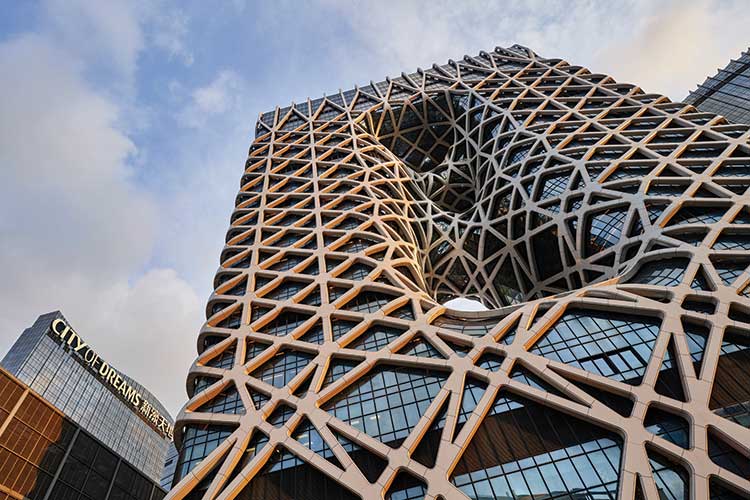
MC: Melco’s hotels always seem to be changing. You’re rebranding the hotels at City of Dreams, Studio City is getting a makeover …
LH: Again, we’re in the fun business. The day that we become bored, our guests are going to feel it as well. That’s the motivation for constantly changing the entertainment propositions. Always having something new. We want to be constantly experimenting.
Operationally, we believe in “kaizen”. There’s a lot of Japanese philosophies that we like, but kaizen is something we’ve been working on for the past three or four years. We have our own in-house trained and registered kaizen trainers. It’s about continuous improvement, how we can do everything better.
At the same time, at the very heart of it, our company is a very good listener. We listen to the Macau government. Macau has always talked about diversification for the future. Now, how fast that future is coming is debatable, but we’re ready for it.
MC: In that future Macau which is a world center for tourism and leisure, are US$4 billion integrated resorts still viable?
LH: Yes. Macau has the greatest benefit in the world: it’s on the doorstep of China and is the only legal city for gaming in China. Macau just needs to take full advantage of it. It’s no secret, there certainly is regional pressure, especially from jurisdictions that are up and coming and from a regulatory standpoint, less rigorous than Macau.
MC: How does Greater Bay Area integration factor in?
LH: It’s great. The first step is the Hong Kong-Zhuhai-Macau bridge, and we are seeing an uptick in visitation. The real benefit comes in having one of the best and most efficient international airports in the world, Hong Kong airport, less than 40 minutes from Macau. So long term, it’s absolutely fantastic. Short-term, I think the integration through Hong Kong, Zhuhai and Macau, there’s more work to be done to make the whole journey smoother and allow more people on it. It’s China. They’re very cautious.
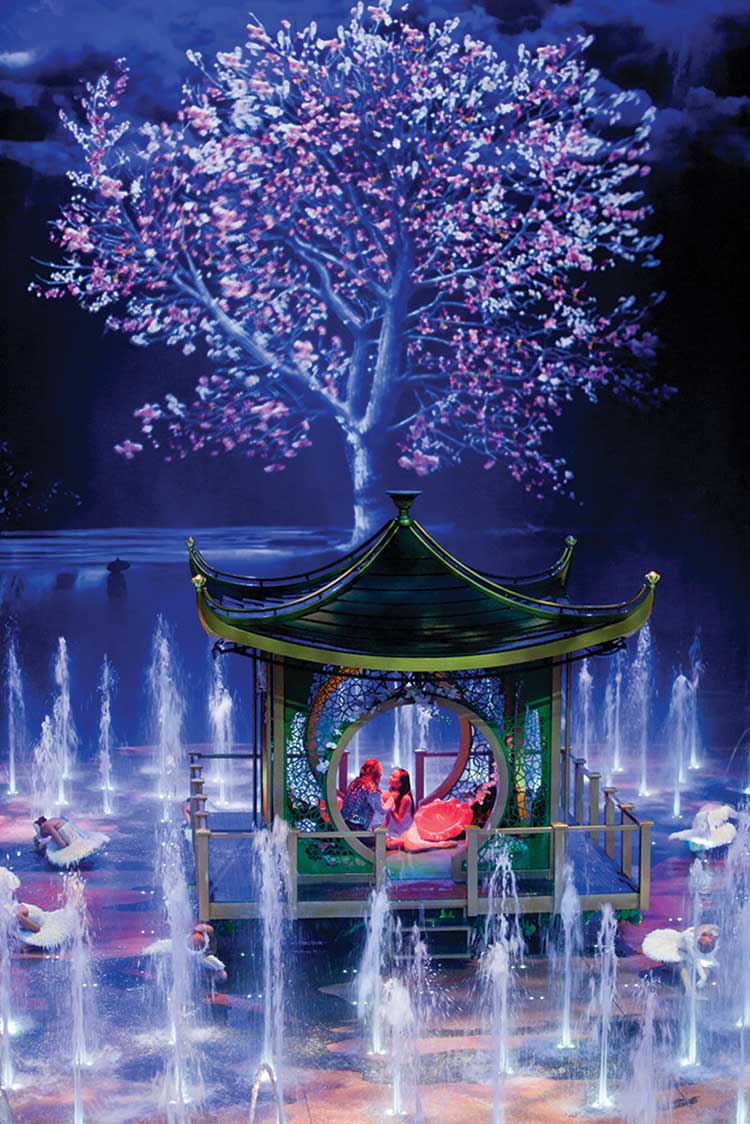
MC: Bay area integration makes Macau even more of a one-market destination. Should Macau instead broaden its customer base?
LH: It’s foolish to think that Macau is going to be a worldwide destination. If you look at Las Vegas, it’s very much a middle-America market. Geographically it’s the closest. With regional gaming competition, people have a lot of choices. Repeat customers are always the ones closest to you. We’ve had some great successes moving our players to the Philippines and getting Filipino players to come to Macau, or Korean players coming to the Philippines to Macau. But at the heart of it, people are still going to go to the markets that are closest to them, especially if there are comparable resorts. The success of Macau, or Hong Kong for that matter, is always going to ride on Chinese policy and the Chinese economy.
MC: With Studio City located next to the Lotus Bridge, is Melco active in Hengqin?
LH: We’ve looked for many years, I wouldn’t say very seriously, and it’s one of the rare things where we’ve gotten the timing right, because we’ve always looked at it and said maybe it’s too early. Every year or two I bring the entire management team over to take a look, given that it’s our neighbor and what’s good for them is good for Macau, and what’s good for Macau, especially in Cotai, is good for Melco. It’s early. Last year when we visited, there was one occupant in all those amazing buildings.
At Melco International, we’ve also looked at it from a non-gaming resort standpoint, to see how we give back to China and how we give back to the Greater Bay Area. Again, it’s still early. But we’re always open-minded.
MC: On Studio City, why not buy out your partner?
LH: I can’t really talk much about it because recently New Cotai filed for bankruptcy protection in the US. But on too many conference calls now we have answered the same question with the same answer: we have had discussions, we have had interest.
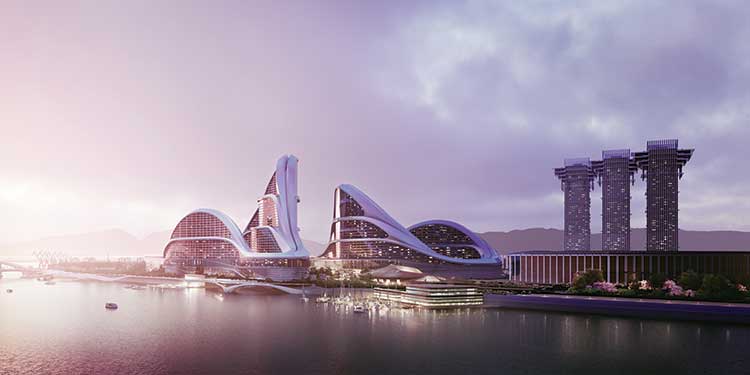
MC: Let’s talk about recent Melco Resorts results.
LH: They were okay. We judge ourselves by relative performance. We’ve changed our compensation scheme for our senior management as well, based on relative performance. I’ve seen it over the years with the evolution of Macau – a rising tide raises all the boats. For many years we had a management team – and thankfully those people are gone – that during the rising tide, they’d pat each other on the back and say, oh my god, we’re so smart, we just can’t get this thing wrong.
In Q1 we had two great months and for whatever reason, that one bad month in March dragged the whole quarter down. As I tell the management team, it’s a learning lesson: just because we had two great months, we can’t take our foot off the pedal, ever. Macau is the greatest gaming market in the world, but it’s also the most competitive, so if you want to play in the super league you have to be performing every single game. You have to kick ass every single day.
But again, everything is a building block and frustrating as it is, as many times as I’ve lost it – and it’s not easy for me to lose it, because I’m kind of a mild-mannered, Canadian happy person – it is part of the building process. Morpheus needed to ramp up. And as much as Morpheus is an iconic addition to City of Dreams, and I was hoping it would be a plug-and-play – you plug it in and it’s good to go – it’s taken time to fine tune the right customer mix.
MC: Do you fear that you built a beautiful property for a market that’s not there?
LH: That fear always exists within me. To be honest, for every “The House of Dancing Water” success, we’ve had a few things that just didn’t connect with people, whether it was too far advanced or people just didn’t get it. When we were building Morpheus and I was walking through, I was like, I hope this billion dollar thing isn’t going to be hated. It’s so modernistic. But thankfully the guests love it.
The hypothesis we’ve always had is, people are going to continue to elevate themselves. They might’ve liked the smoky, low-ceiling, neon lights, the tacky gold and shiny white marble in the past, but as their taste evolves they’re going to want more elegant things. I think Morpheus has proved that.
But 10 years ago the rule was that if Lawrence likes something, more likely than not, guests aren’t going to like it.
MC: So have you changed? Have guests changed?
LH: Over the past 10 years, guests coming to Macau have definitely become more sophisticated.
Our goal at Melco has always been to build things that are ahead of the times from an international perspective. Of course, I have also learned from our past experiences we cannot be too far ahead.
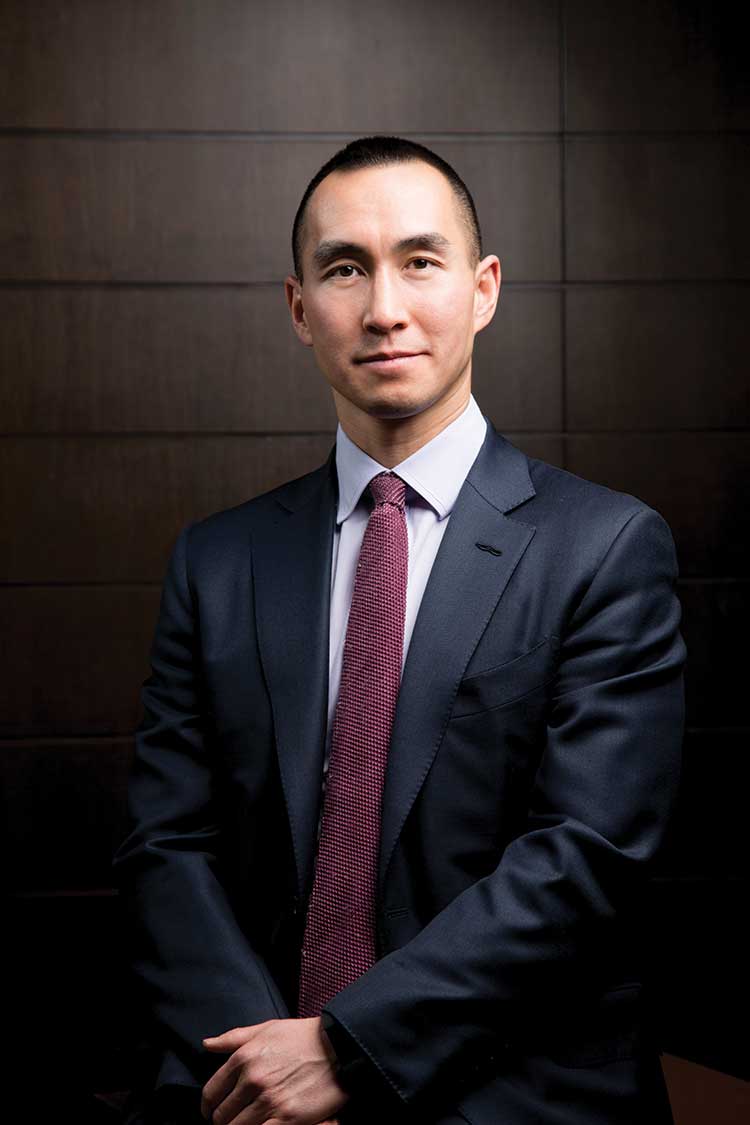
MC: Some people say Melco is better at financial deals than running resorts.
LH: The story of Melco was really built in the last 15 years. And yes, a lot of corporate finance was involved.
But on the resort side, there are things that we’ve always done very well. We’re very proud that we have more Forbes five-star hotels than any of our competitors in the markets we operate in. We have more Michelin-star restaurants than any of our competitors. The reason those things are important for us is that we do appeal to a premium customer. And premium customers are not just coming for the gaming experience, they’re coming for the total resort experience, and naturally accommodation and food and beverage are very important. Equally with the attractions and entertainment, no one has won more attractions awards. So we do a lot of stuff really, really well on non-gaming.
On the gaming side, we can do better. I hope our financial performance can be better and that goes back to the philosophy which we’ve always had, that we’re building for the future. But even now, I do have conversations with my colleagues that we’ve built all this great stuff, the future is now. Let’s stop looking at people who are going to be coming in three years, they should come now.
But having said that, would I do anything differently? I really wouldn’t. I want to make sure that the stuff we’ve built we’re totally proud of. I’m never going to say that people like that cheap gold and red stuff, so we’re going to plaster our resorts with it.
MC: Why not combine the listings of Melco International and Melco Resorts?
LH: We’ve looked at that. But especially with license renewal on the horizon, the government likes that Melco International controls Melco Resorts and that Melco International is a Hong Kong-listed company that I control. But we’ll take a look at it in the future.
MC: Is your management set-up still working?
LH: It’s working very well. Having property presidents fully focused on their property – we have a matrix structure – and working with our functional leaders in areas of excellence, it’s working very well, much better than just a COO. The reason I went away from that was because when Studio City opened, not enough emphasis was placed there. And Altira for many years was just disappearing into space. Andy Choy, ever since he took over [Altira], has turned the business – it was at a US$10 million run rate – into a US$50-plus million business. It’s having people that care about the property. For us it has worked out well.
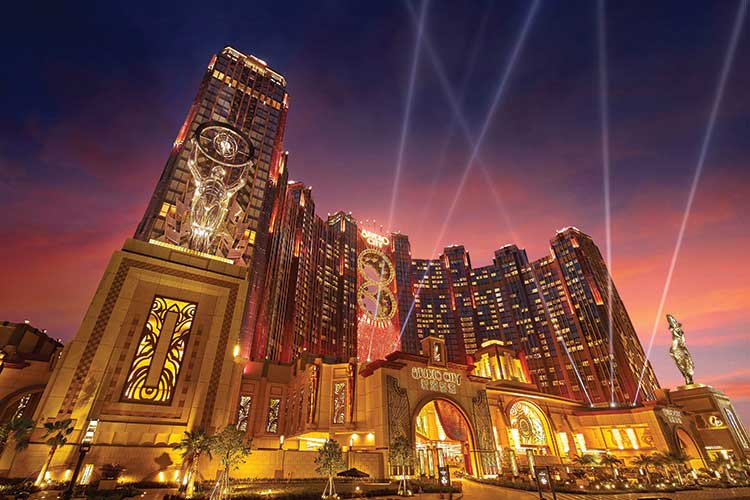
MC: Was Morpheus an advertisement for Japan?
LH: That’s part of it. Morpheus was really a love letter to Macau to say thank you. But everything we do, we want to continue to build up a strong portfolio and a great showcase for what we can do in jurisdictions like Japan, to show them that we’re capable of building these things.
It’s one thing to show Japan or other jurisdictions pretty pictures of what your architect came up with, it’s quite another to actually deliver on it and execute it. My message has always been, you need to look at the track record. People can say they can build the nicest things in the world, but have they really done it before? Have they been able to deliver the type of customer service that gets these Michelin stars?
Melco Crown: The Sequel
Melco Resorts & Entertainment took everyone by surprise when they announced in May a US$1.2 billion deal to acquire 19.99% of Crown Resorts, controlled by Lawrence Ho’s former Macau partner and co-Chairman James Packer. Ho discusses the acquisition with IAG.
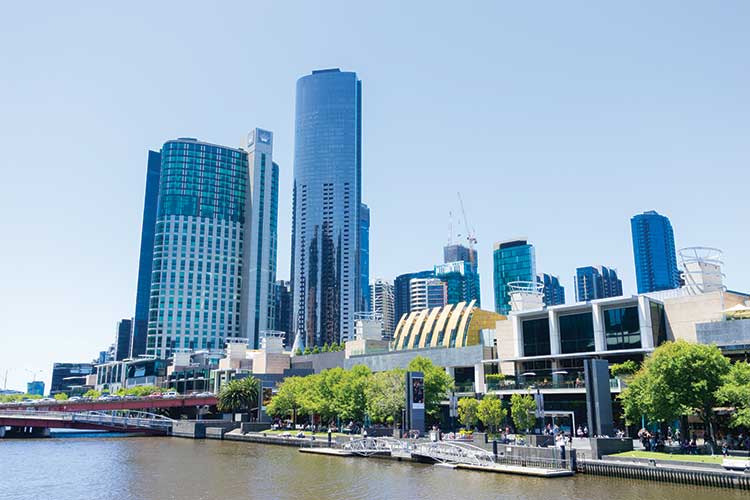 Muhammad Cohen: What prompted the Crown deal?
Muhammad Cohen: What prompted the Crown deal?
Lawrence Ho: We didn’t even start talking about this thing until a few weeks ago, after the news about Wynn’s proposed acquisition came out. Because, at the end of the day, even though my partnership with James ended a couple of years ago, I have the utmost respect for him. We’re friends and we kept in contact.
When the Wynn thing came about, that’s when I called him and said, “Hey, what’s your real intention? If you are really interested to divest, you have really great assets. The two organizations share similar philosophies.”
That was when the transaction really started.
MC: Does buying into Crown financially constrain Melco for other projects, such as Studio City phase two and a Japan IR?
LH: No, absolutely not. We certainly have enough firepower for Japan. And don’t forget [in] Japan, even the bidding is probably a year away and by the time anything gets built, it is going to be two or three years.
When we compare Melco’s balance sheet with our competitors, our coverage and our leverage ratio are much lower than most of the US competitors.
MC: Will passing Australian probity checks help for Japan?
LH: Australia is known as the strictest probity center in the world, stricter than Nevada, and getting through the probity in Australia is another vote of confidence for us. Also, where Crown built their property in Melbourne used to be a very terrible part of the city. Japan is very focused on urban revitalization of certain areas, especially with IRs.
From the regulatory probity review side, it is a huge plus. From the urban renewal side, Crown is a great case study and I heard a lot of Japanese bureaucrats talk about it as well.
Australia is also a country that has a high propensity to gamble, so at the same time, they have some of the best social responsibility programs. That’s another thing that Japan really cares about, social safeguards and how to prevent and fight gaming addiction.
MC: Was there any discussion with Beijing about the acquisition, given the arrests of Crown personnel in China three years ago?
LH: Well, I have regular dialogue and I’ve had my courtesy talk, and Beijing and Macau were supportive. At the same time, they understand that as a company that’s listed in the US, we’re obligated to do our own thing. But even the couple of quiet talks we had were supportive.





























